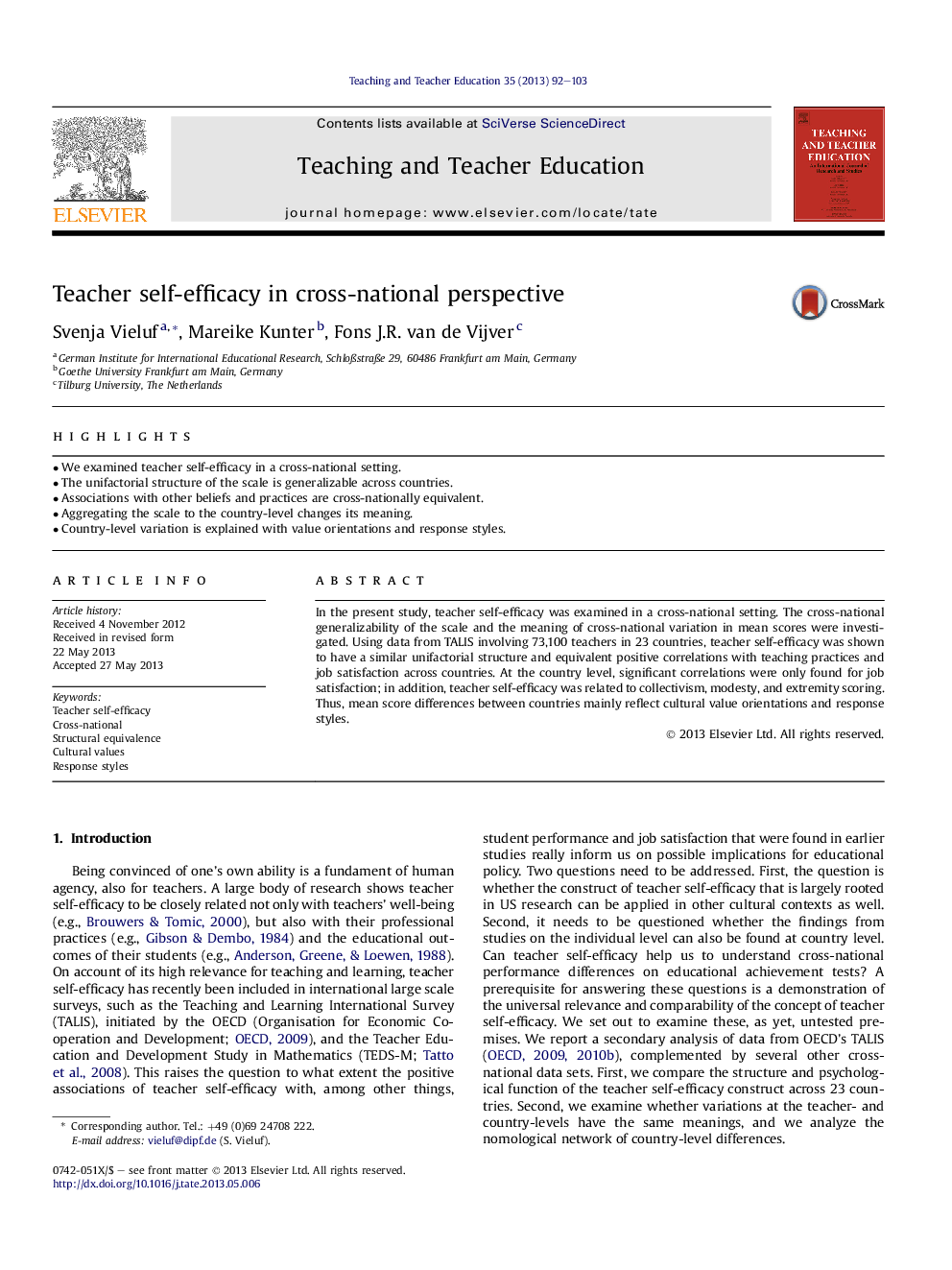| Article ID | Journal | Published Year | Pages | File Type |
|---|---|---|---|---|
| 374069 | Teaching and Teacher Education | 2013 | 12 Pages |
•We examined teacher self-efficacy in a cross-national setting.•The unifactorial structure of the scale is generalizable across countries.•Associations with other beliefs and practices are cross-nationally equivalent.•Aggregating the scale to the country-level changes its meaning.•Country-level variation is explained with value orientations and response styles.
In the present study, teacher self-efficacy was examined in a cross-national setting. The cross-national generalizability of the scale and the meaning of cross-national variation in mean scores were investigated. Using data from TALIS involving 73,100 teachers in 23 countries, teacher self-efficacy was shown to have a similar unifactorial structure and equivalent positive correlations with teaching practices and job satisfaction across countries. At the country level, significant correlations were only found for job satisfaction; in addition, teacher self-efficacy was related to collectivism, modesty, and extremity scoring. Thus, mean score differences between countries mainly reflect cultural value orientations and response styles.
